RCFP’s 2023 year in review

Since its founding in 1970, the Reporters Committee for Freedom of the Press has enjoyed many successful years providing free legal support to protect First Amendment freedoms and the newsgathering rights of journalists.
2023 was one of our best.
What stands out about this past year is not just the scope of the Reporters Committee’s work — which expanded alongside our growing legal staff — but the extent to which it helped journalists and news organizations keep the public informed, hold government accountable, and strengthen press protections for years to come.
In 2023, the reporting made possible by Reporters Committee attorneys’ free legal support took the public inside jails and prisons, closed-door school board meetings, and even an FBI interrogation. It shed light on everything from a botched U.S. drone strike in Afghanistan to a government surveillance operation at the U.S.-Mexico border. And it prompted renewed scrutiny into the deaths of two Native American men at the hands of law enforcement.
Reporters Committee attorneys helped news organizations fight for — and win — greater transparency in high-profile court cases across the country, including the criminal case in Georgia against former President Donald Trump and the prosecution of five former Memphis police officers charged with the murder of Tyre Nichols.
Reporters Committee attorneys also continued the organization’s long tradition of protecting journalists against abusive actions by the government. They secured a groundbreaking $700,000 settlement on behalf of a public radio journalist who was violently arrested in Los Angeles while covering racial justice protests — and won commitments from the Los Angeles County Sheriff’s Department to train its personnel on the rights of the press to gather the news. They also quickly came to the defense of a family-owned local newspaper in Kansas after its newsroom and the home of its publisher were raided by the police.
At the local and national level, Reporters Committee attorneys filed more than 25 lawsuits on behalf of journalists and news organizations. They brought cases against cities, counties, state agencies, law enforcement, and more. But the Reporters Committee’s free legal support wasn’t limited to those lawsuits.
Our attorneys also filed more than 45 friend-of-the-court briefs on issues critical to press freedom, including several submitted to the U.S. Supreme Court. They resolved more than 500 calls to our free Legal Hotline, answering journalists’ questions about everything from how to access public records to how to protect sources.
Through our pre-publication review partnerships, Reporters Committee attorneys vetted more than 30 investigative articles and documentary films to help journalists reduce their legal risk. They also trained more than 2,000 journalists, media attorneys, students, and others on a wide range of First Amendment and media law issues.
The journalists our attorneys helped in 2023 have called the Reporters Committee’s free legal support “extraordinary,” “incredible,” and “absolutely indispensable.”
“It’s really great your organization exists,” one journalist said after a Reporters Committee attorney helped him successfully challenge a township’s effort to silence his reporting. “You are about the rights of the people.”
For a more in-depth look at the Reporters Committee’s year, here’s a recap of the highlights.
National
Culminating nearly three years of work, attorneys from the Reporters Committee and Gibson, Dunn & Crutcher LLP helped Josie Huang, a reporter for NPR member station LAist 89.3, reach a $700,000 settlement agreement in November with Los Angeles County and the Los Angeles County Sheriff’s Department related to the journalist’s violent and unlawful arrest in 2020. Huang’s attorneys also successfully represented her in obtaining a ruling from a California court that she was factually innocent of the offense for which she was arrested.
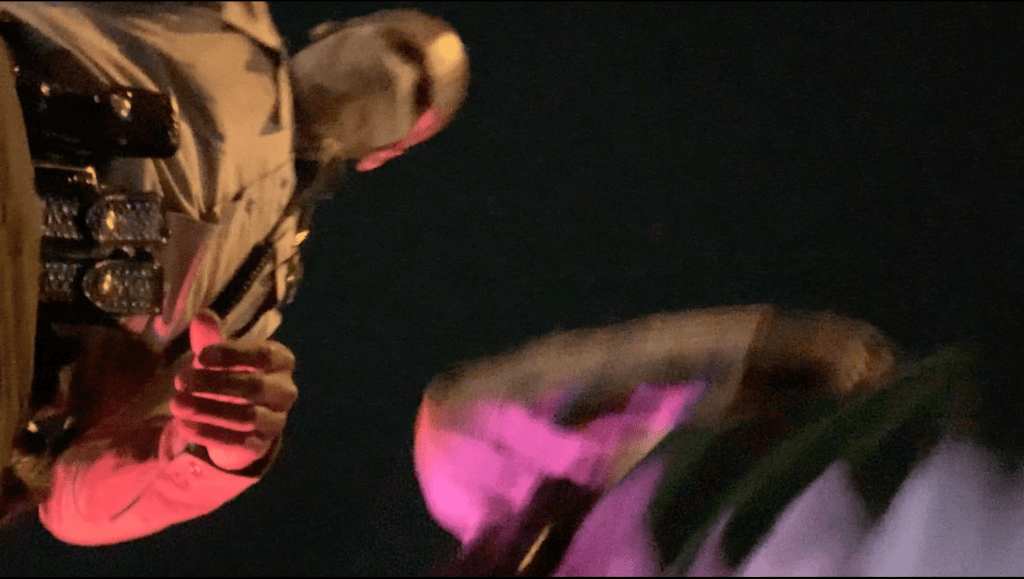
The settlement — to the Reporters Committee’s knowledge, the largest award to an individual journalist whose rights were violated in connection with protest coverage in 2020 — sets a new benchmark for journalists arrested or assaulted by law enforcement. The agreement is also significant for its training requirements, intended to help prevent local law enforcement officials from unlawfully arresting and assaulting journalists in the future.
“This settlement upholds the rights of journalists and helps ensure that what happened to me won’t happen to other reporters,” Huang said. “My arrest was traumatic, but I hope that some good can still come of this experience.”
***
Just days after Huang’s settlement, attorneys from the Reporters Committee and the First Amendment Clinic at Case Western Reserve University School of Law filed a lawsuit on behalf of NewsNation journalist Evan Lambert stemming from his unlawful arrest earlier this year while covering a press conference about the derailment of a train carrying toxic chemicals in East Palestine, Ohio. The lawsuit alleges that Columbiana County, the city of East Palestine, and five law enforcement officials violated Lambert’s rights under the U.S. Constitution and Ohio law.
“I’m bringing this lawsuit because journalists should be able to cover newsworthy matters without fear of arrest or retaliation,” Lambert said. “The public had an obvious interest in the response by Ohio officials to the train derailment in East Palestine, and as a journalist, it was my duty to report that information.”
***
In January, The New York Times published an investigation by journalist Azmat Khan examining a botched U.S. drone strike in Kabul, Afghanistan, in August 2021 that killed 10 innocent civilians, including three children.
Using portions of a U.S. Central Command investigation she obtained with the help of Reporters Committee attorneys, Khan’s reporting shed light on the flawed intelligence and confirmation bias that led military officials to target a man who later turned out to be an Afghan aid worker. Her story also raised questions about Pentagon officials’ initial public statements defending what they called a “righteous” strike despite early reports from military analysts claiming that innocent civilians had been killed.
***
More than a year after the murder of Las Vegas Review-Journal reporter Jeff German, his newspaper won an important court victory that prohibits local law enforcement officials from searching the journalist’s electronic devices as part of their investigation into his death.
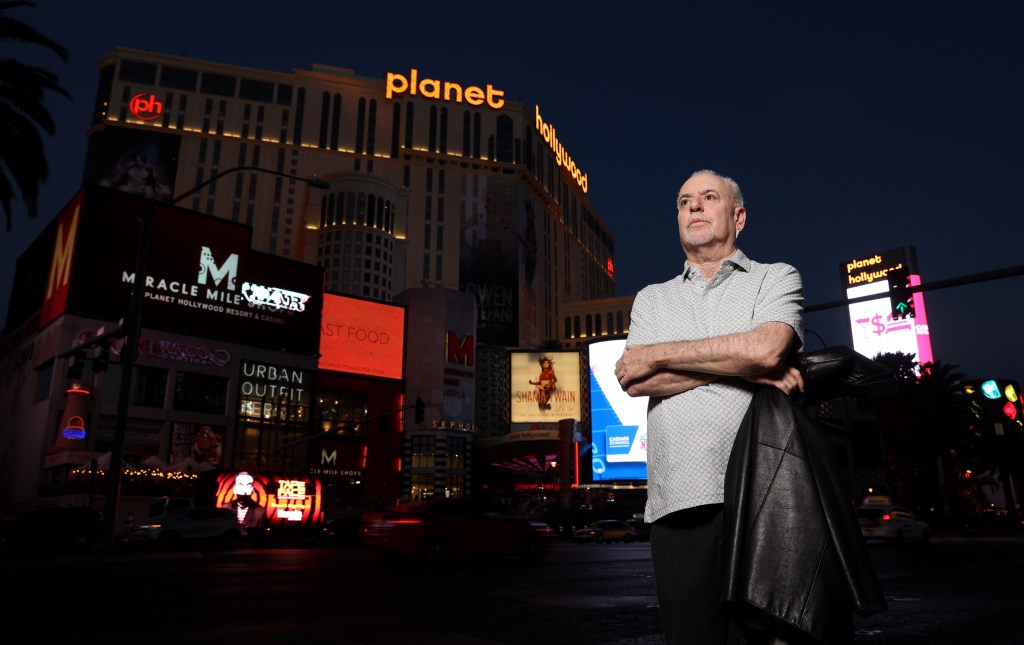
In an opinion issued in October, the Nevada Supreme Court held that the protection of the state’s shield law survives a reporter’s death and that the district court “abused its discretion” by entering a search protocol that would have allowed Las Vegas law enforcement officials to review the materials found on German’s electronic devices. The state Supreme Court instead directed the district court to enter a new protocol that tasks a third-party team with conducting the search.
The Reporters Committee filed multiple friend-of-the-court briefs over the past year in support of the Review-Journal’s fight to protect newsgathering materials contained in German’s electronic devices, which law enforcement officials seized as part of their investigation into his murder. Our final brief — filed in August with the Nevada Supreme Court and joined by 53 media organizations — highlighted the robust, nationwide consensus that reporter-source confidentiality is essential to effective newsgathering and argued that the Nevada Shield Law bars law enforcement’s search of the devices.
***
In October, the Reporters Committee and a coalition of six journalism and news organizations filed a federal lawsuit to block the enforcement of a new Indiana law that makes it a crime to approach within 25 feet of a police officer after being told to withdraw.
The lawsuit argues that the statute violates the First and Fourteenth Amendments to the U.S. Constitution, and that it threatens to chill public-interest reporting about the actions of law enforcement in a range of public settings, from protests and political rallies to press conferences.
“This law is clearly unconstitutional and puts journalists covering law enforcement in an impossible position: stop reporting or risk being arrested and criminally charged,” said Katie Townsend, the Reporters Committee’s deputy executive director and legal director. “By criminalizing newsgathering, the law prevents journalists from doing their job effectively and deprives the public of important information.”
***
In February, a judge lifted the veil of secrecy from a legal battle concerning the public’s right to access police disciplinary records in Maryland after the Reporters Committee and The Washington Post challenged a protective order that shielded judicial filings from the public.
The lawsuit is one of the first test cases of the Maryland Police Accountability Act of 2021, known as Anton’s Law, which generally allows police disciplinary records to be disclosed under the state’s public records law.
***
The Reporters Committee filed several friend-of-the-court briefs with the U.S. Supreme Court, addressing a controversy over online speech, the scope of the First Amendment’s exception for true threats, the rights of reporters documenting illegal crossings at the southern border, and, most recently, government efforts to control how social media companies moderate their platforms.
As Reporters Committee Staff Attorney Grayson Clary wrote in an analysis of the Supreme Court’s last term, “this year saw important victories and dangerous close calls for press freedom.”
***
The Los Angeles Times, represented by Reporters Committee attorneys, successfully fought to unseal jail surveillance footage that shows sheriff’s deputies using force against inmates inside Los Angeles County jails.
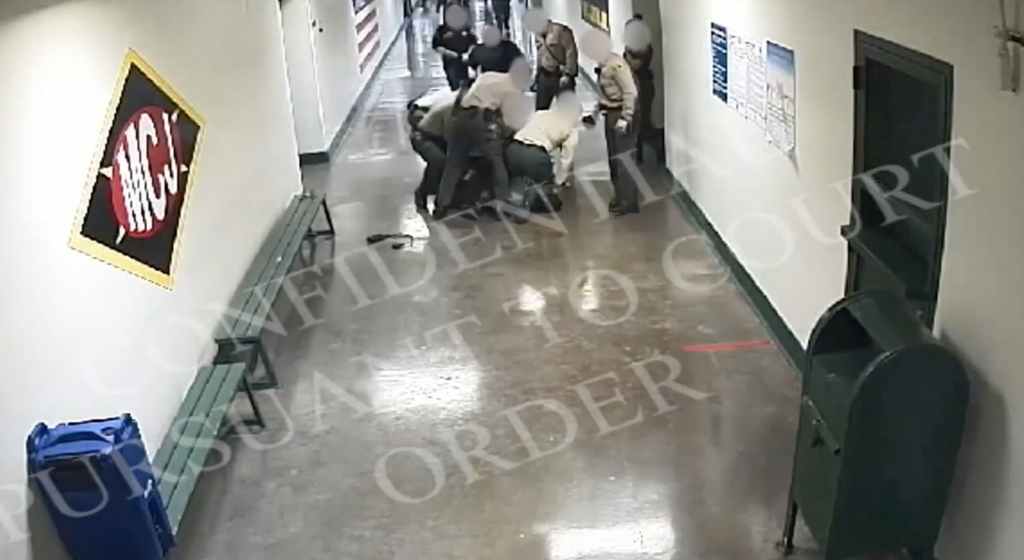
As the Times reported, the videos offer “a rare view of the culture of violence that has persisted behind bars despite a decades-long federal lawsuit and years of jail oversight.”
***
Within 36 hours of the police raid on the Marion County Record in August, the Reporters Committee gathered more than 30 national and regional co-signers to our letter to the chief of the Marion Police Department condemning the raid and exposing its blatant unlawfulness. The Reporters Committee also helped connect the Marion County Record with a lawyer based in Kansas City.
Through our participation in the Press Freedom Partnership, we worked with The Washington Post to run a full-page print ad and digital ads to bring public awareness to the threat that newsroom raids pose to a free press. Reporters Committee Executive Director Bruce D. Brown and Technology and Press Freedom Project Director Gabe Rottman delivered a similar message in an op-ed for Gannett.
“Newsroom searches are the most intrusive actions police can take to shut down reporting, especially reporting on their own activity,” they wrote. “They are corrosive to the very fabric of our free society.”
And in an op-ed for the Los Angeles Times, Brown and Rottman noted how the police raid on the Marion County Record highlights a growing threat to press freedom: vague, sweeping computer crime laws that “can be readily used to intimidate reporters and suppress reporting without raiding their offices.”
***
After a media coalition and the Reporters Committee objected, the state of Georgia walked back its proposal to restrict the news media’s ability to publish information about jurors and prospective jurors in the criminal case against former President Donald Trump and other defendants.
Reporters Committee attorneys had argued in a friend-of-the-court brief that placing restraints on the press’s coverage during one of the most closely watched trials in American history would be unconstitutional and undermine the public’s confidence in the administration of justice. Under a revised proposal ultimately granted by the Fulton County Superior Court, only parties involved in the case will be subject to a provision barring the sharing of information that would reveal the identities of jurors and prospective jurors in the proceedings.
***
Codebreaker Films released “Reality Winner,” a documentary about the National Security Agency whistleblower who spent more than four years in prison for exposing Russian interference in U.S. elections. The film, directed and produced by Sonia Kennebeck and Ines Hofmann Kanna, prominently features exclusive audio recordings, including some of Winner’s jail phone calls and FBI agents’ interrogation of Winner. Reporters Committee attorneys helped the filmmakers obtain those recordings through a Freedom of Information Act lawsuit against the FBI and the Department of Justice.
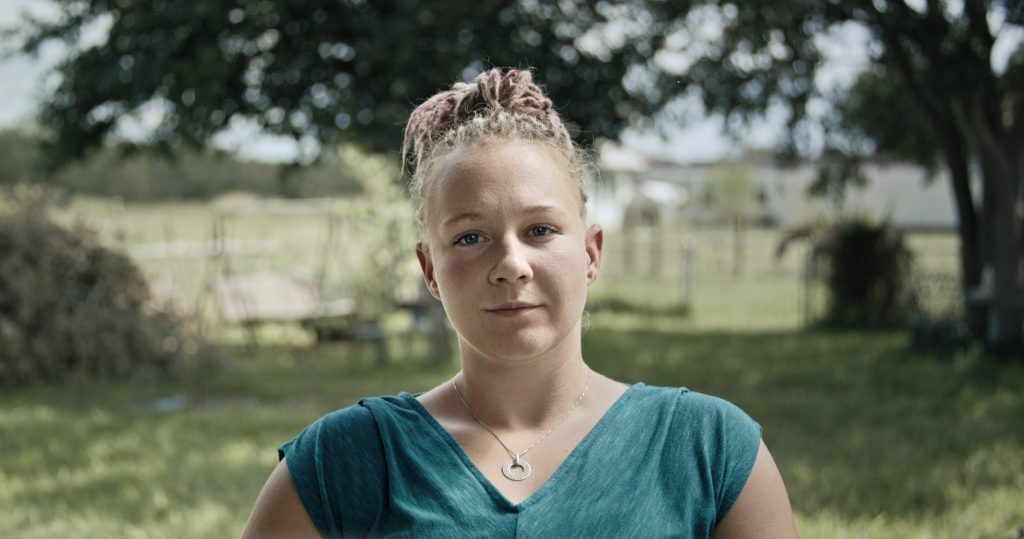
“Without a Reporters Committee,” Kennebeck said, “we would have not been able, as a small company of two people, to file a lawsuit against the FBI and get this crucial information.”
***
The Reporters Committee partnered with the Police Executive Research Forum and the U.S. Justice Department’s Office of Community Oriented Policing Services to convene an October meeting of police executives and journalists to discuss the promulgation of best practices around law enforcement interactions with reporters who are covering protest activity. The discussion covered a wide range of topics, including: the identification of journalists during protest activity; the utility in a persistent point of contact for open communication between press and police; and the safeguarding of First Amendment rights. The Reporters Committee anticipates significant work ahead in 2024 as its attorneys use the expected DOJ guidance to educate police departments around the country and continue to support journalists subjected to unlawful interference in protected newsgathering.
***
In newsletters and blog posts, Reporters Committee attorneys provided insightful analysis on a variety of media law and First Amendment issues, including egregious attacks against press freedom, defamation law and the “actual malice” standard, the Justice Department’s updated news media guidelines, and a routinely misused exemption to Virginia’s public records law.
***
The Reporters Committee and 62 media organizations urged the U.S. Supreme Court to make a permanent commitment to provide live audio of oral arguments, arguing that livestreaming proceedings before the Court “unequivocally benefits the public and the press.” While the Supreme Court has yet to commit to making the practice permanent, it has continued to provide live audio streaming of oral arguments during its current term.
***
The Reporters Committee and seven media organizations successfully pushed for public notice of a court hearing in a high-profile lawsuit in federal district court in Texas that sought to revoke Food and Drug Administration approval of mifepristone, a medication abortion drug.
***
Reporters Committee legal fellows — including those sponsored by The E.W. Scripps Company, NBCUniversal News Group, and the Dow Jones Foundation — played a crucial role in supporting the work of RCFP’s legal team at the local and national level, drafting legal briefs, vetting investigations for legal risk, fielding hotline calls, and training journalists on their legal rights.
In May, for example, then-E.W. Scripps Legal Fellow Sasha Dudding appeared before the Commonwealth Court of Pennsylvania to present oral argument in a case concerning access to the autopsy records of a man who died in a county jail. The court ultimately issued an important decision holding that autopsy and toxicology reports are publicly accessible under Pennsylvania’s Coroner’s Act.
***
During our annual Freedom of the Press Awards, the Reporters Committee celebrated the exceptional achievements of leaders in the news media and legal fields — and raised funds so that the Reporters Committee can continue to support and defend the free press for years to come.
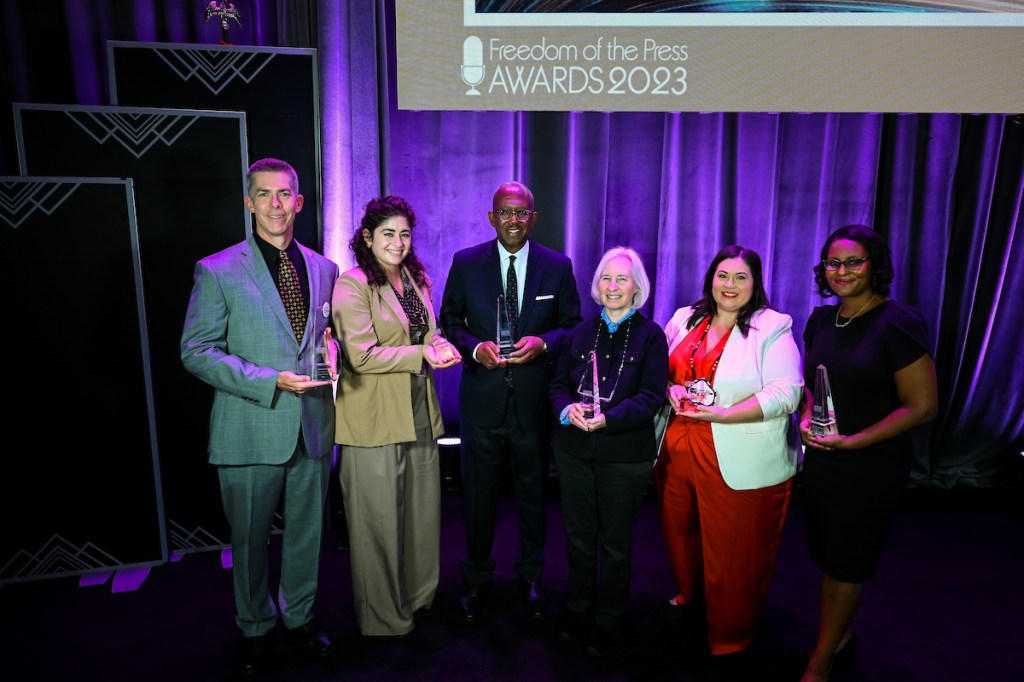
You can watch the videos celebrating this year’s award winners — Rachel Aston, Glenn Cook, Lizzie Johnson, Rebecca Landsberry-Baker, Ashton R. Lattimore, Martha Minow, and Pierre G. Thomas — as well as event remarks on our YouTube channel.
Local
In 2023, the Reporters Committee strengthened and expanded two innovative programs dedicated to helping local journalists produce powerful investigative reporting and chip away at the culture of secrecy in local and state government. Both programs are made possible by the generous financial support of the John S. and James L. Knight Foundation.
Through our partnership with Microsoft and Davis Wright Tremaine LLP, we continued to build out ProJourn, which brings together teams of seasoned media attorneys and corporate in-house counsel to provide local journalists and newsrooms free legal help with pre-publication review and public records access. And our Local Legal Initiative, which launched in 2020, has proven so successful in transforming the legal landscape of local news in Colorado, Oklahoma, Pennsylvania, and Tennessee that we recently announced that we will soon be hiring an attorney in Indiana.
Here are highlights from our work at the local level:
ProJourn
Through ProJourn, the Reporters Committee helped connect local journalists and newsrooms with attorneys who collectively recorded nearly 2,500 pro bono hours in support of their newsgathering and reporting in 2023. Attorneys working with ProJourn vetted 45 stories before publication, including an award-winning investigative series by Civil Eats on the lack of federal protections for animal agriculture workers. They also handled 25 public records matters and led 14 trainings — including several in Spanish — teaching journalists everything from how to access public records to how to mitigate legal risks before publishing.
But perhaps ProJourn’s most notable impact in 2023 involved its work on behalf of Open Vallejo, a nonprofit newsroom in California and one of ProJourn’s first clients. Through public records litigation, attorneys from Davis Wright Tremaine and Microsoft helped Open Vallejo uncover that senior officials for the city of Vallejo intentionally destroyed records related to police shootings involving the Vallejo Police Department.
“ProJourn has been absolutely transformative to our work,” Open Vallejo Executive Editor Geoffrey King told the Reporters Committee. “It’s important to have powerful allies in the fight for truth.”
Local Legal Initiative
In Colorado, Local Legal Initiative Attorney Rachael Johnson helped six local news outlets obtain the recording of a closed-door meeting where board members unlawfully crafted a policy reinstating armed police officers to local high schools the day after a school shooting. ![]()
On behalf of her clients, she also appealed two high-profile cases to the Colorado Supreme Court: one concerning whether a public library can shield the names of people who seek to ban books, and another concerning news organizations’ efforts to access data about the certification, training, and personnel changes of law enforcement officers in Colorado.
Johnson is also currently litigating several other cases on behalf of local news outlets, including one matter involving access to the disciplinary records of a town’s former police chief and another challenging secrecy in a high-profile criminal case against a cardiologist charged with drugging and sexually assaulting 13 women he met on dating apps.
***
In Oklahoma, former Local Legal Initiative Attorney Kathryn E. Gardner helped the McCurtain Gazette access police body-worn camera footage related to the death of a Choctaw Nation citizen after a confrontation with police. The New Yorker later highlighted the Reporters Committee’s support in a story documenting the Gazette’s efforts to hold the local sheriff’s department accountable — and the threats its reporters faced for doing so. ![]()
Gardner’s legal support on behalf of The Frontier was also critical to the release of jail surveillance video, incident reports, and other records related to the 2019 death of a Kiowa Tribe member following a violent struggle with jailers. The public release of the records prompted a local district attorney to review whether criminal charges are warranted.
Outside of litigation, Gardner helped compile a new guide that provides a primer on press freedom and information access in Oklahoma’s federally recognized tribes. Following Gardner’s departure from the Reporters Committee earlier this year, we welcomed Denver Nicks as our new Local Legal Initiative attorney in Oklahoma. He will continue the Reporters Committee’s critical work on behalf of journalists and news organizations in the state.
***
In Pennsylvania, Local Legal Initiative Attorney Paula Knudsen Burke spent much of 2023 helping news outlets fight for access to records filed under seal, spanning everything from divorce records to major legal settlements involving county jails and their health care providers. ![]()
Burke’s successful legal work on behalf of Spotlight PA fueled the investigative news outlet’s reporting exploring how Pennsylvanians are using the state’s relatively new medical marijuana program. And her work on behalf of the Mon Valley Independent, The Herald-Standard, and Observer-Reporter helped lift the veil of secrecy from a murder-for-hire case.
Most recently, Burke sued Penn State University’s Board of Trustees on behalf of Spotlight PA, alleging violations of Pennsylvania’s open meetings law. “By regularly meeting in secret, Penn State officials are not just violating the state’s Sunshine Act, they are also violating the public’s trust,” Burke told Spotlight PA. “In order to hold an institution as large and influential as Penn State accountable, we must demand greater transparency.”
***
In Tennessee, Local Legal Initiative Attorney Paul McAdoo helped news organizations unseal court records, including graphic videos showing prison staff physically restraining and forcibly medicating a mentally ill death-row inmate and records related to the criminal cases of the five former Memphis police officers charged with the murder of Tyre Nichols. ![]()
McAdoo filed several public records lawsuits on behalf of journalists in the state. In one case, he helped Lindsay Pride, the editor of the Herald-Citizen, obtain the salaries of senior administrators of a publicly owned local hospital. And in another case, he helped journalist Marc Perrusquia win access to the salary information of the regional vice presidents of a federal agency that provides power to roughly 10 million people in the Tennessee Valley. McAdoo continues to represent Perrusquia in a separate lawsuit filed in 2023 that seeks access to records that would help the public better understand how the city of Memphis and its police department assess and evaluate an early intervention program intended to improve the performance of troubled police officers.
Through the Reporters Committee’s free Legal Hotline, McAdoo helped journalist Mathaus Schwarzen obtain an internal grievance filed by a female police officer who was allegedly raped while participating in an undercover investigation. And through his quarterly column for the Tennessee Press, McAdoo also informed journalists in the state about their rights and offered tips to help them navigate legal issues, including how to vet stories before publication and when to challenge efforts to seal court records.
Data included in this report were compiled by Data Specialist Brittany Lower and Senior Staff Attorney Jennifer Nelson.